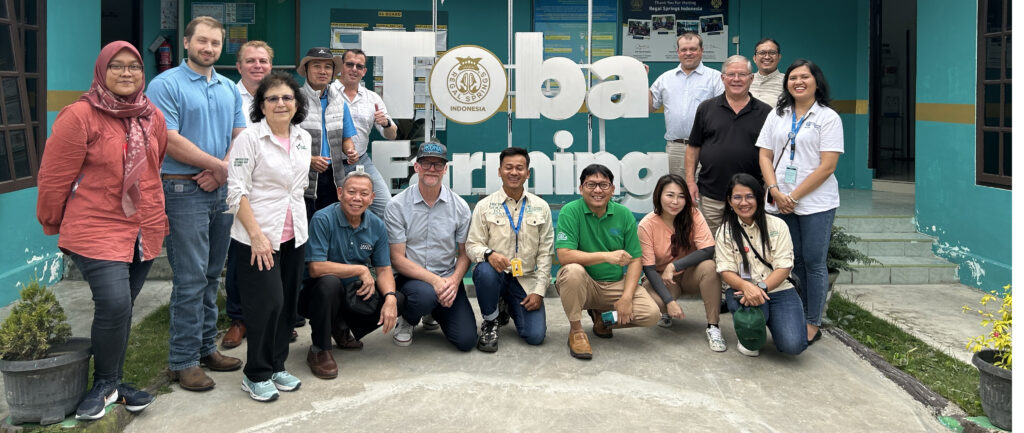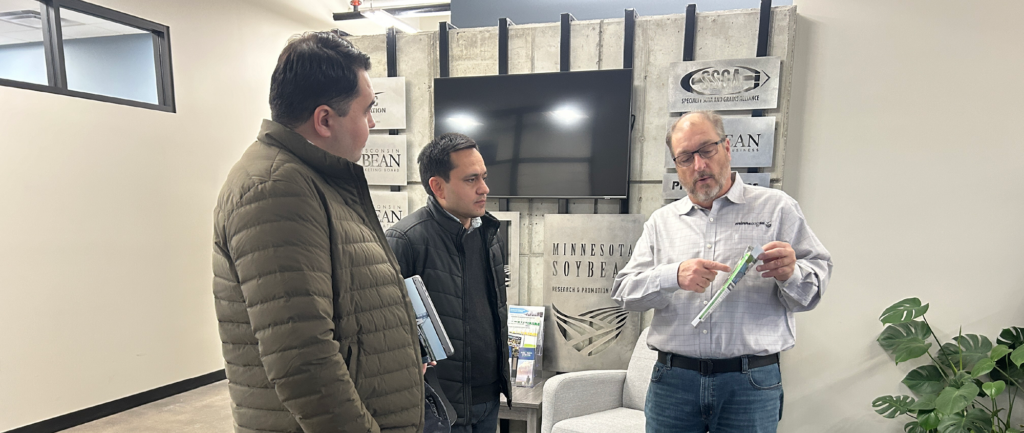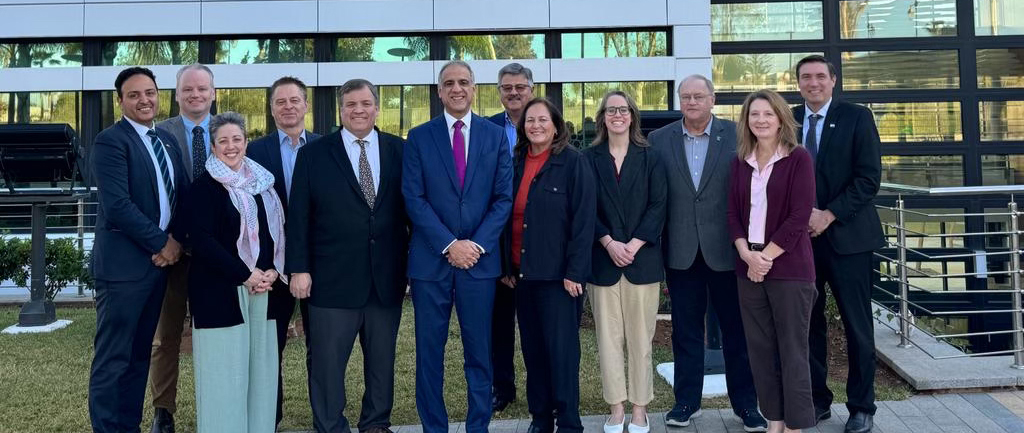Minnesota Soybean Growers Association (MSGA) Director Darin Johnson is a veteran of hosting international trade teams at his family farm in Wells, Minn.
“I really enjoy visiting with folks from other countries and finding common ground,” he says. “It’s all about building relationships and keeping them intact.”
This week, Johnson hosted his first trade mission team from Thailand. The Thailand Import Group (TIG) consisted of importers and end-users who purchase and import soybeans and soybean meals for animal feed use. TIG imports more than 500,000 metric tons of U.S. soybeans each year.
Johnson explained to the purchasers how a late planting season and heavy rains had affected his farm and the region. Standing alongside his soybean field, the fourth-generation farmer showed the trade team how he uses a tablet to compile data and make the best decisions for his operation.
“Technology helps us be good stewards of the land,” he said.
Thailand purchasing manger Tiantum Sirichayaporn, a football fan sporting a Dallas Cowboys shirt and hat, said he was impressed with the scope of Johnson’s operation.
“We look forward to buying more feed from Minnesota,” he said.
The event was sponsored in part by the Minnesota Soybean Research & Promotion Council (MSR&PC) and the United States Soybean Export Council (USSEC). Kim Nill, Minnesota Soybean’s director of market development, helped plan TIG’s visit with USSEC’s Opas Supamornpun. MSR&PC Chair Patrick O’Leary was also on hand to welcome the Thailand delegation.
“These trade teams are always fun and educational for both sides,” Nill said. “Most importantly, these missions continue to highlight and underscore the high value and qualities of U.S. soybeans.”
Coming on the heels of a potential trade war with China, international relations were a timely topic.
“With everything going on in the world right now, these relationships with our trade partners are more important than ever,” Johnson said. “We need to maintain these relationships, so we obviously will always prefer trade over tariffs.”







